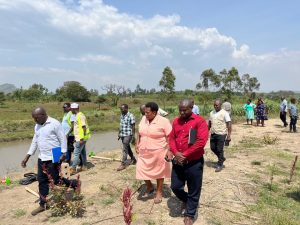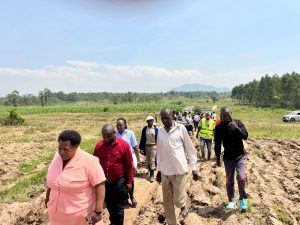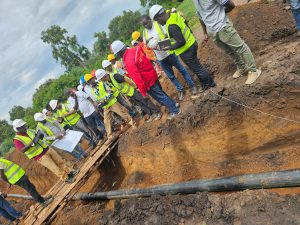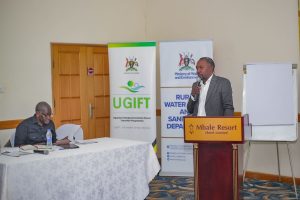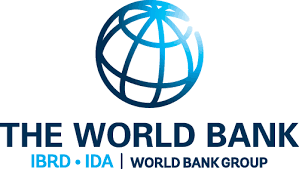IFPA-CD PROJECT – Promoting Climate-Smart Forest Management in Uganda
The Government of Uganda has designed the “Investing in Forest and protected Areas for Climate Smart Development Project”, (The Project), that will be financed by the International Development Association (World Bank) and Government of Uganda. Preparation of The Project is led by the Ministry of Water and Environment, together with the Ministry of Tourism, Wildlife and Antiquities, Uganda Wildlife Authority, and the National Forestry Authority. The project aims to improve sustainable management of forests and protected areas and increase benefits from forests and protected areas in the target landscapes.
The Investing in Forest and protected Areas for Climate Smart Development Project preparation builds on the national REDD+ Readiness processes during which a national REDD+ Strategy and National Forest Plan (FIP) were prepared, through a wider stakeholder consultation process. The National REDD+ Strategy includes 8 REDD+ Strategy Options which have formed the basis for identifying appropriate interventions to be supported by the Project. Investment Project #1 of the FIP has been designed to be implemented as IFPA-CD project.
Launch of the IFPA-CD Project on 9th March 2022
The Investing in Forests and Protected Areas for Climate-Smart Development (IFPA-CD) Project implemented by the Ministry of Water and Environment, Ministry of Tourism, Wildlife Antiquities, National Forestry Authority, and Uganda Wildlife Authority jointly will launch the IFPA-CD Project on March 09, 2022. The Launch event will take place at the National Forestry Authority Grounds in Bugolobi.
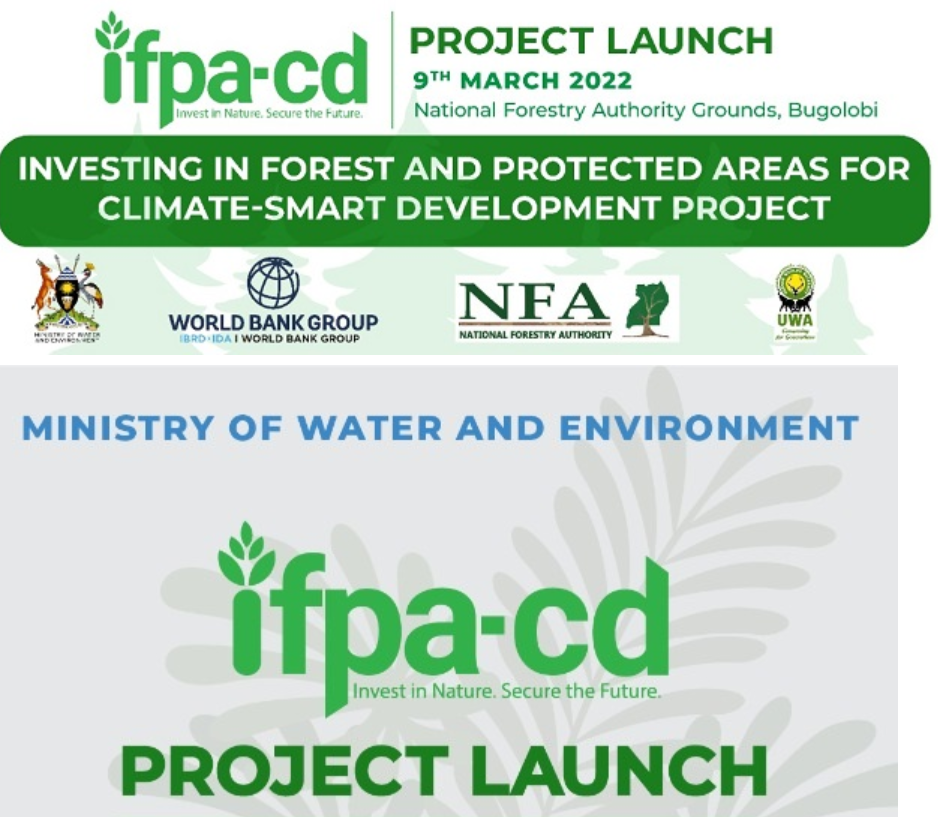
INVESTING IN FORESTS AND PROTECTED AREAS FOR CLIMATE-SMART DEVELOPMENT(IFPA-CD) PROJECT BRIEF
The IFPA-CD project development objective is to to improve sustainable management of forests and protected areas and increase benefits to communities from forests in target landscapes that include Albertine Rift, the refugee hosting areas of West Nile Region and Lamwo District.
The project has four components: (1) Improved management of protected areas; (2) Increased revenues and jobs from forests and wildlife protected areas; (3) Improved landscape management in refugee-hosting areas; and (4) Project management and monitoring.
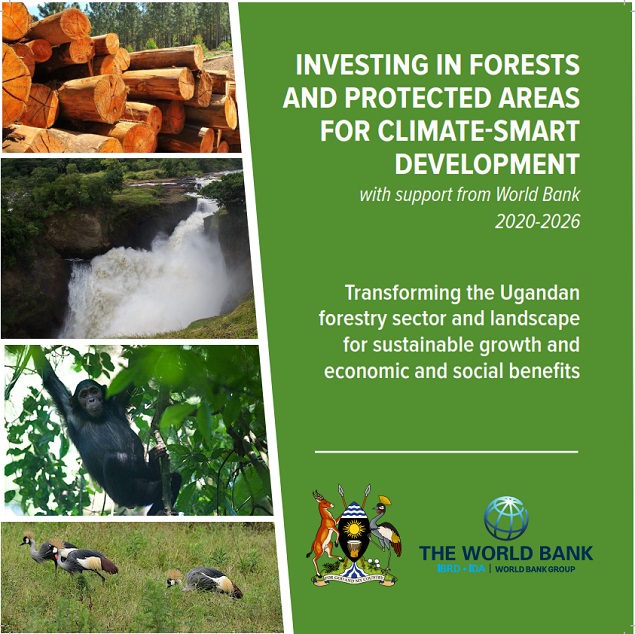
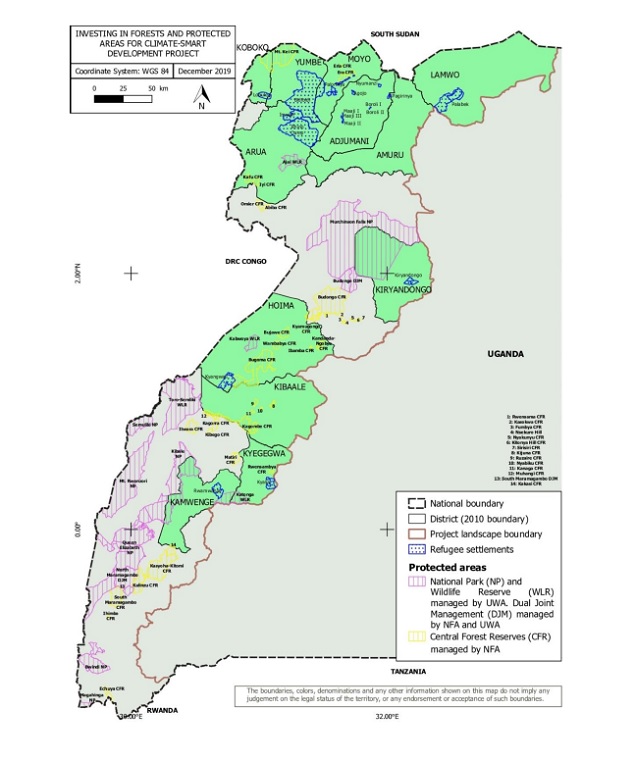
Bid for Gas Chromatograph
The Global Environmental Facility (GEF) has been supporting the Government of Uganda (GoU) to improve the capacity of its institutions to comply with the transparency requirements of the Paris Agreement. The Government of Uganda has received funding from the GEF through Conservation International (CI), the Implementing Agency, to strengthen Uganda’s institutional and technical capacity to respond to the Enhanced Transparency Framework requirements of the Paris Agreement.
Blog Post- Launch of Capacity Building Initiative for Transparency Phase II (CBIT II) Project
Uganda, as a signatory to the Paris Agreement, is committed to reducing its greenhouse gas emissions (GHG) 24.7% by 2030 and contributing to the global targets. To achieve this, Uganda is required to set up infrastructure that will provide accurate information to track progress towards its commitment to reduce global emissions for Enhanced Transparency Reporting under Article 13 of the Agreement.
Gender Action Plan for IFPA-CD Project
The Gender disparities affecting forest-related activities are multidimensional and multifaceted, reinforcing each other. Gender disparities are equally felt among the historically marginalized groups of Batwa as well as refugees (and particularly women, girls, and the disabled within these groups). The gender barriers associated with the IFPA-CD Project are framed in the following themes: institutional, legal, economic, social, and environmental/climate change contexts. Gender constraints in the refugee communities are similar to those in the host communities; thus, similar actions in the action plan will target these constraints. These barriers cut across the project objectives.
IFPA-CD Communications Officer, Procurement Officer & Accountant
Background
The project of IFPA-CD under Government of Uganda funding component is to seek qualified competent applicants to apply for the position of Communications Officer, Procurement Officer & Accountant.
IFPA-CD Project, Mid Term Review, Evaluation Report
The Government of Uganda is implementing “The Uganda Investing in Forests and Protected Areas for Climate Smart Development (IFPA-CD)” Project with Word Bank (WB) and Government of Uganda counterpart funding. As part of the World Bank commitment, there is USD 58 million from the IDA18 Refugee Sub-window (RSW).
The Project was approved on 23rd April 2020 and became effective on 18th August 2021. A Midterm Review (MTR) was commissioned by the Ministry of Water and Environment to assess the progress made by the project towards achieving its objectives, identify challenges and opportunities, and make practical recommendations for the project to effectively deliver on its objectives and targets, including any adjustments in scope and implementation as may be deemed necessary. This report summarises the MTR’s main findings, conclusions and recommendations.
Stakeholder Engagement Plan (SEP)
The Stakeholder Engagement Plan (SEP) is for Uganda’s “Investing in Forests and Protected Areas for Climate-Smart Development (IFPA-CD) Project. The SEP describes the commitments and process for Stakeholders’ engagement during the IFPA-CD Project implementation (July 2021-June 2026). The IFPA-CD Project aims to improve the sustainable management of forests and protected areas and increase benefits to communities from forests in target landscapes. This will be achieved by undertaking integrated interventions by the Ministry of Water and Environment, Ministry of Tourism, Wildlife, and Antiquities, Uganda Wildlife Authority, National Forestry Authority, targeted District Local Governments, and contracted Technical Service Providers.
Vulnerable and Marginalized Groups Framework (VMGF) for IFPA-CD Project
The Government of Uganda has designed the “Investing in Forest and protected Areas for Climate Smart Development Project”, (The Project), that will be financed by the International Development Association (World Bank) and Government of Uganda. Preparation of The Project is led by the Ministry of Water and Environment, together with the Ministry of Tourism, Wildlife and Antiquities, Uganda Wildlife Authority, and the National Forestry Authority. The project aims to improve sustainable management of forests and protected areas and increase benefits from forests and protected areas in the target landscapes.
The Project recognizes the importance of rights and interests of the Vulnerable and Marginalized Groups according to the requirements of Environmental and Social Standard (ESS)7, on (Indigenous Peoples in Sub-Saharan Africa Historically Undeserved Traditional Local Communities which addresses the needs of distinct, vulnerable, social and cultural groups, such as the Batwa) and on the applicable policies, laws and regulations of Uganda.
This Vulnerable and Marginalized Groups Framework document is therefore intended to guide the preparation of the Project interventions that may affect vulnerable and marginalized groups in the targeted project areas.
Environmental and Social Safeguards Framework (ESMF) for the IFPA-CD Project
Government of Uganda has designed the Investing in Forests and Protected Areas for Climate Smart Development Project that will be financed by the World Bank (WB) and Government of Uganda.
The Environmental and Social Management Framework presents an Environmental and Social Management Framework (ESMF) for the Uganda Investing in Forests and Protected Areas for Climate Smart Development Project. The ESMF is one of a set of due diligence instruments required to address and manage environmental and social impacts associated with the Project activities.
The ESMF highlights socio-economic, legal, policy and institutional contexts of the project and sets a framework of the Uganda’s roles and responsibilities in addressing the assessed social and environmental risks and impacts.
Proposed Construction Of Queen Elizabeth Protected Area Electric Fence In Kasese, Kitagwenda And Rukungiri Districts
Uganda Wildlife Authority has been grappling with the challenge of Human Wildlife Conflict since creation. The Authority, together with surrounding communities and partners, has deployed a number of initiatives to address this challenge including digging trenches, planting unpalatable crops such as red chili, cotton, coffee along the boundary, bee hives, use of community scouts among others. Despite the numerous efforts, the challenge of HWCs still persists and this has increased friction between community and park management.
In 2018, Uganda Wildlife Authority in collaboration with Space for Giants started implementing electric fencing to contribute to the already existing initiatives to curb human wildlife conflict. This was piloted in Queen Elizabeth National Park under the Public Private Partnership arrangement and was later extended to Murchison Falls National Park.
The objective of the electric fence is to reduce the human wildlife conflict especially elephants which are affecting the agricultural community around the National Parks.
ESMP for the Stonewall in Mgahinga Gorilla National Park
Under Investing in Forests and Protected Areas for Climate Smart Development (IFPA-CD) Project, Uganda Wildlife Authority (UWA) is planning to construct a stonewall along the boundary of Mgahinga Gorilla National Park (MGNP). An Environmental and Social Management Plan (ESMP) has been developed and this ESMP presents a detailed framework for managing the environmental and social impacts and risks associated with the construction of the stonewall.
ESMP for the Elephant Trench in Kibale in National Park
Under Investing in Forests and Protected Areas for Climate Smart Development (IFPA-CD) Project, Uganda Wildlife Authority (UWA) is planning to excavate an elephant trench along the boundary of Kibale National Park. An Environmental and Social Management Plan (ESMP) has been developed and this ESMP presents a detailed framework for managing the environmental and social impacts and risks associated with the excavation of the elephant trench.
Environmental and Social Management Plans (ESMP) for the Picnic Site in Bwindi Impenetrable National Park
Under Investing in Forests and Protected Areas for Climate Smart Development (IFPA-CD) Project, Uganda Wildlife Authority (UWA) is planning to construct a picnic site near Munyaga Falls in Bwindi Impenetrable National Park (BINP). An Environmental and Social Management Plan (ESMP) has been developed and this ESMP presents a detailed framework for managing the environmental and social impacts and risks associated with the construction of the picnic site.
Project Specific Vulnerable And Marginalized Groups Framework (VMGF) And The Process Framework (PF).
The Government of Uganda (GoU) is implementing the “Investing in Forests and Protected Areas for Climate-Smart Development (IFPA-CD) Project”. The project is financed by the International Development Association (IDA) of the World Bank and GoU. The implementation of the project is led by the Ministry of Water and Environment (MWE), Uganda Wildlife Authority (UWA), and the National Forestry Authority (NFA). The development objective of the project is “to improve sustainable management of forests and protected areas and increase benefits to communities from forests in target landscapes”. The targeted landscapes of the Albertine rift of which the Bwindi Impenetrable National Park (BINP), the Echuya Central Forest Reserve (CFR), the Mgahinga Gorilla National Park and the Batwa around Semuliki National Park form a significant part.
During project preparation, the MWE, jointly with UWA and NFA, prepared and disclosed the project specific Vulnerable and Marginalized Groups Framework (VMGF)1 and the Process Framework (PF). The VMGF and PF were prepared to meet the requirements of the World Bank Environmental and Social Framework (ESF) under the Environmental and Social Standard 7 (ESS7) on Indigenous Peoples / SubSaharan African Historically Underserved Traditional Local Communities and ESS5 on Land Acquisition, Restrictions on Land Use and Involuntary Resettlement respectively.
ESMF for IFPA-CD Project
This document presents an Environmental and Social Management Framework (ESMF) for the Uganda Investing in Forests and Protected Areas for Climate Smart Development [the Project]. The ESMF has been developed in tandem with a Process Framework (PF) as one of a set of due diligence instruments required to address and manage environmental and social impacts associated with the Project activities.
Process Framework (PF) for IFPA-CD Project
As per the World Bank environmental and social risks screening, the Government of Uganda is required to develop a Process Framework (PF). A process framework is prepared when Bank-supported projects may cause restrictions in access to natural resources in legally designated protected areas. The purpose of the process framework is to establish a process by which members of potentially affected communities participate in design of project components, determination of measures necessary to achieve the objectives of ESS5 (see box below), and implementation and monitoring of relevant project activities.
Occupational Health and Safety Measures
The IFPA-CD Project “Occupational Health and Safety Measures” aim to provide guidelines on how work will be executed during the implementation of the IFPA-CD Project to ensure that the health and safety of the workers are adequately managed to prevent injuries and loss of lives during the course of employment.
Occupational Health and Safety Measures document has been developed in a manner consistent with the World Bank’s Environmental and Social Standard(ESS) 2 on Labour and working conditions in addition to relevant GoU legal and regulatory framework, World Bank Group General Environmental Health and Safety Guidelines (WBG EHS Guidelines), International Labour Organisation Conventions, and other Good International Industry Practices.
Environmental and Social Commitment Plan (ESCP) – November 2020
Republic of Uganda/Ministry of Finance, Planning and Economic Development (MOFPED) will implement material measures and actions so that the Project is implemented in accordance with the World Bank Environmental and Social Standards (ESSs). This Environmental and Social Commitment
Plan (ESCP) sets out a summary of the material measures and actions, any specific documents or plans, as well as the timing for each of these.
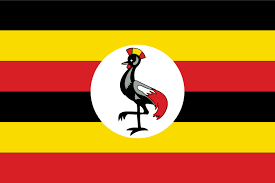 Official Website of the Ministry of Water and Environment
Official Website of the Ministry of Water and Environment

